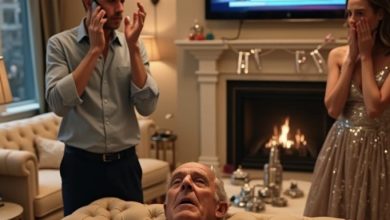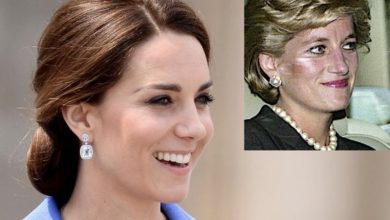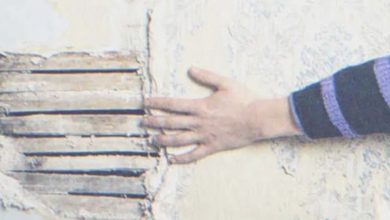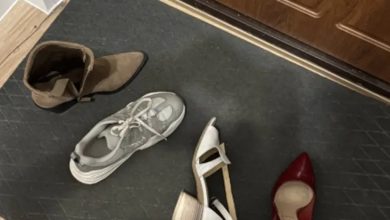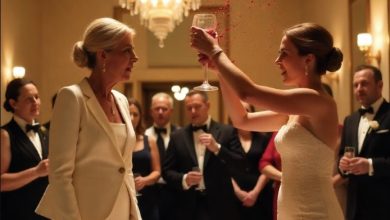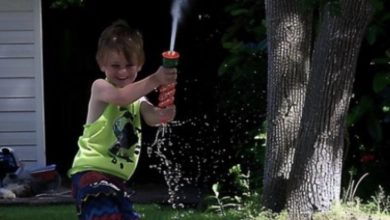Thirty Guests, Zero Help, One Boarding Pass — How Walking Away From Thanksgiving Finally Saved My Marriage
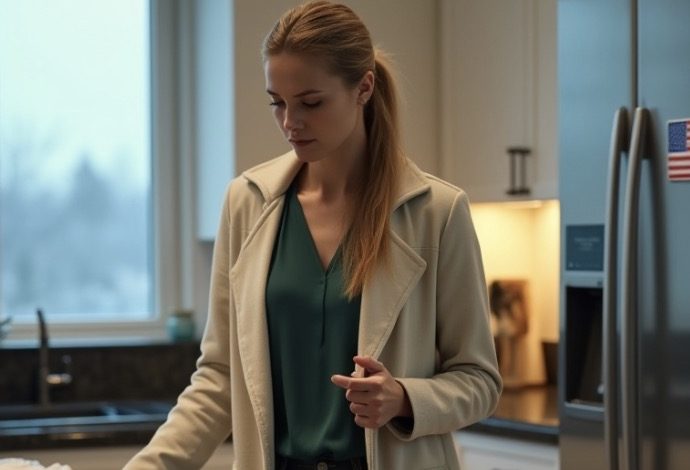
My mother-in-law told me to wake up at four in the morning to cook Thanksgiving dinner for thirty of her guests. My husband, Hudson, chimed in with a smile, “This time, make sure everything is really perfect.” I smiled back and said, “Of course.” At three a.m., I rolled my suitcase to the airport.
The gate agent’s voice crackled above me. “Final boarding for Flight 442 to Maui. Final boarding.” I looked through the window at the dark November runway and, for a heartbeat, I didn’t see planes at all. I saw our Ohio kitchen: the dining room already set for thirty, the still-frozen turkeys, the guest list Vivien had placed on the counter like a court order, and the short note I’d left for Hudson. My phone buzzed in my pocket—Hope you’re up cooking, babe. Mom’s texting about timing. I powered it off and stepped onto the jet bridge.
I wasn’t only walking away from a meal. I was walking away from the version of me who had said “of course” to everything for the last five years.
Three days earlier, the whole chain of events began with the sound of Vivien’s heels on our hardwood floor—sharp and decisive, each click a verdict. She swept into the kitchen the way she entered every room, like ownership came with the air around her. Hudson liked to remind me that his parents had “basically bought us this house” by helping with the down payment. I had learned quickly that “basically bought” meant “we get to decide how this house runs.”
I was elbow-deep in soapy water, rinsing plates from the pot roast I’d made because it was “Hudson’s favorite” and because years ago Vivien had shown me the “proper” way to make it. My hands were pink from the heat. I had stopped wearing dish gloves the day she laughed and said they made me look “oddly professional, like you think this is a job.”
“Isabella, darling,” she sang, dropping her designer purse on the counter. That tone always meant a task was coming, wrapped up as a compliment. “We need to finalize Thanksgiving.”
“Of course,” I said, forcing cheer into my voice. “What do you have in mind?”
Hudson sat at the island scrolling his phone. At his mother’s words he glanced up, sharing with her the small, private look of two people speaking over someone else’s head.
Vivien produced a neatly folded paper and smoothed it beside the sink. “This year’s guest list,” she said. “I’ve added a few friends.”
I dried my hands and picked it up. Names ran down the page in tidy rows: Cousin Cynthia, Uncle Raymond, the Sanders from the country club. People I saw twice a year but knew entirely too much about from Vivien’s constant commentary. I counted once. Then again.
“Thirty,” I said.
“Thirty-two,” she corrected, tapping near the bottom. “I count little Timmy Sanders as half a person for appetite, but prepare full portions—growing boy.” Her laugh tinkled like brittle glass.
In previous years we’d topped out at fifteen. Even that meant two days of prep, a fourteen-hour sprint on the day, and me eating my plate cold at the counter while everyone else complimented Vivien on being such a marvelous hostess.
“When did you invite all these people?” I asked.
“Oh, over the last few weeks.” She fluttered a hand. “Don’t fuss about timing. You always manage. People adore your cooking.”
Hudson finally looked up long enough to nod. “You’ve got this, babe. You always pull it off.”
I flipped to the second sheet. Vivien’s immaculate cursive spelled out the menu. “I’ve handled the planning,” she said. “The Sanders expect a certain standard.”
My eyes blurred. Turkey with three different stuffings. A glazed ham. Seven sides. Dinner rolls from scratch. Four desserts. Homemade cranberry sauce. Pumpkin pie with a crust “from scratch only—store-bought simply won’t do.”
“Vivien,” I said carefully, “that’s a lot for one person.”
“Nonsense.” She smiled the tight smile that never reached her eyes. “You’re wonderfully capable. And Hudson will help.”
I looked at my husband, hoping he’d hear me. He was already back on his phone.
“I’ll definitely help,” he said. “I can carve and open the wine.”
That, to him, was help.
“What time do you want dinner?” I asked, though my stomach already knew the answer would be unreasonable.
“Two o’clock sharp,” Vivien said. “The Sanders prefer an early meal. You should start by four a.m. to be safe—perhaps three-thirty if you want it perfect this time.”
“This time?” I repeated.
“The stuffing was a bit dry last year,” Hudson added. “Mom noticed.”
The stuffing I’d made while juggling six other dishes. The stuffing everyone else had praised. The stuffing Vivien had requested again.
“Of course,” I said. “I’ll make everything perfect.”
That night, after Vivien went home and Hudson fell asleep in front of SportsCenter, I sat alone at the kitchen table with a notebook, a calculator, and a cup of coffee that went cold. If the turkeys went in at six, they could be ready by two—but then what about the ham, the casseroles, the rolls? There weren’t enough hours or enough ovens. No matter how I moved the pieces, the equation didn’t add up.
I looked again at the list of thirty-two names. Mine wasn’t one of them. I was working for thirty-two people and didn’t even count as a guest.
Another detail snapped into focus: Ruby’s name was missing. Ruby—divorced six months, steady as a rock at every holiday since I’d joined the family. I called her.
“Vivien phoned last week,” she admitted. “She suggested that, considering my ‘situation,’ I might prefer a quieter gathering. Somewhere more…appropriate.”
“So she uninvited you,” I said.
“She wouldn’t use that word,” Ruby answered. “But yes.”
In Vivien’s world you were welcome only as long as you fit the picture. Useful, presentable, unmessy. One day I would be one misstep away from being edited out, too.
Tuesday at six a.m., the grocery store felt like an empty movie set, humming lights over half-stocked shelves. My cart groaned under three turkeys, two hams, and enough produce to feed a small town. Our neighbor, Mrs. Suzanne, eyed the mountain and asked, “Big dinner?”
“Thirty-two,” I said.
“By yourself?”
“My husband will help,” I heard myself say.
She studied me for a long second. “Honey, someone standing on the dock while you drown isn’t ‘help.’ Don’t let them tell you it is.”
Her words followed me home like a shadow. By noon, every counter was covered. I chopped, sautéed, labeled. My back ached; my hands were raw. Hudson wandered in mid-morning in pajama pants and bed hair, sipping coffee like it was any other Tuesday.
“Wow,” he said. “You’re really going all out. Smells amazing already.”
I was elbow-deep in stuffing. “Can you help me lift this?” I asked. “It’s too heavy for me alone.”
He checked his watch. “I promised the guys a quick round of golf—pre-holiday tradition. But I’ll be back in time to help tomorrow.”
“Golf,” I repeated.
“Just nine holes. Maybe eighteen if we’re quick.” He air-kissed near my cheek. “You’ve got this, babe. You’re a machine.”
The word hit me squarely. Machines don’t tire; machines don’t feel. And machines don’t ask for help.
By late afternoon the kitchen looked like a war zone. I’d barely started desserts when Vivien called. “Just checking, dear. Oh—and the Sanders boy has a severe nut allergy. Not a trace anywhere, and no cross-contamination.”
I stared at three casseroles topped with toasted nuts. “I’ve already—”
“I’m sure you’ll sort it out,” she said briskly. “You’re so good with details.” Click.
Hudson came home near ten, smelling of grass and beer. “Everything on track?” he asked.
“There’s a problem,” I said. “Three dishes have nuts. I need to redo them from scratch.”
“So make different versions,” he said with a shrug. “No big deal.”
“Hudson, I need real help,” I said, voice shaking. “Not carving. Not opening bottles. Cooking. With me.”
He looked surprised. “But you’re better at it than I am. And Mom specifically asked for your dishes. People expect your food.”
“Maybe they can start expecting yours,” I snapped, startling us both.
“You’re stressed,” he said. “Tomorrow I’ll help. But I’ve got an early call with Singapore. I need rest.”
Translation: I would be alone in the kitchen at dawn. Again.
At two forty-seven a.m., I woke before my alarm. The house was silent. I padded downstairs and stared at the pale turkeys waiting for heat, at the neat prep bowls lined up like soldiers. Vivien’s guest list lay beside the stove.
What if I simply didn’t get up? What if thirty-two people walked into a house that smelled like nothing and realized the feast they took for granted didn’t appear by magic?
The thought felt wild and wonderful.
I made coffee and opened a travel site, telling myself I was only looking. A banner flashed at the top: last-minute Thanksgiving getaway to Hawaii, early departure, return Sunday. Flight 442 to Maui. Departure 4:15 a.m.—the exact moment I was supposed to slide the first turkey into the oven.
The price made my stomach knot. Hudson would call it reckless. But it was our joint money, built as much by my invisible labor as by his salary. The question in my head changed: What kind of family hands thirty-two people’s work to one woman and calls her selfish if she can’t do it?
I pressed “Select flight.” I typed my name—Isabella Fosters—into the form. Seeing just my name felt like electricity. “Book now.” Confirmation pinged back. Gate B12.
I packed with shaking hands: sundresses he said were “too casual,” swimsuits I hadn’t worn in years, a paperback, sunscreen. At three, Hudson’s phone rang. Vivien’s worried voice drifted down the hall: “What if Isabella mishandles the cross-contamination? Liability—” “She always handles it,” he mumbled. “She’s probably already cooking.”
I zipped the suitcase, set a note beside Vivien’s list—Hudson, something came up and I had to leave town. You’ll need to handle Thanksgiving dinner. Groceries are in the fridge. —Isabella—and slipped out into the cold.
Hudson woke at seven expecting coffee, heat, and the smell of turkey. Instead, he found a cold stove, silent rooms, and my note. Panic pushed him to the phone. My voicemail caught his message. He called my sister, Carmen. “Is she with you? Thirty people are coming.”
“Thirty?” Carmen said, voice hardening. “You expected my little sister to cook for thirty alone?”
He could almost hear her shake her head. “If she left, it’s because she was drowning and nobody noticed.”
Vivien phoned ten minutes later. “Impossible,” she said when he told her. “Isabella would never abandon a holiday.” But she had. Restaurants were already booked or closed. A hotel manager said, “Sir, it’s nine on Thanksgiving. We cannot create a feast for thirty-two by two o’clock.”
At one, guests started arriving. They stepped into confusion instead of roasted warmth. “Where’s Isabella?” Aunt Margaret asked. “Family emergency,” Hudson said, not knowing if it was a lie. Vivien emerged with flour in her hair, trying to control chaos. The Sanders eyed the room, clutched their child’s EpiPen, and eventually left.
Carmen arrived with a casserole and a truth they all needed. “Isabella didn’t abandon you,” she told the room. “You’ve abandoned her for years—sat on the couch while she worked herself sick so you could brag about hosting. When she finally stopped, your first thought wasn’t ‘Is she okay?’ It was ‘Who’s cooking our turkey?’”
Far away, on a breeze-washed patio in Maui, I finally turned my phone on. The screen flooded with messages. Hudson: This isn’t funny. Call me. Vivien: Whatever point you’re making, you’ve made it. Come home. Aunt Margaret: Are you safe? Carmen: I’m proud of you. Ruby: I wish I’d had your courage when Vivien uninvited me.
Hudson called again. I answered. “Where are you?” he asked, exhausted. “Hawaii,” I said. “Vacation.” He said I couldn’t leave without telling him. He said people were counting on me. I told him they were counting on me to do the impossible with no help. He promised “more help next year”—maybe hiring someone to serve so I could cook more. He still didn’t get it.
“How many hours did I spend prepping?” I asked. He guessed “a lot.” I told him: thirty-seven over three days. His help? One hour—carving and uncorking. “I don’t want a chef,” I said. “I want a partner. I’m a person with limits, not a machine.”
“I want to try,” he said at last, sounding lost. “Please come home.”
I did, after the holiday. He looked wrung out, humbled. We drove in silence until he asked, “What now?” I told him the truth: we’d find out if our marriage could survive me having boundaries.
Vivien came over ready for battle. “You humiliated us,” she started. “The club is talking. Is this how an adult behaves?” I told her I was communicating my needs now. I would never again cook for thirty-two. I would not be the unpaid staff. She said Hudson would never agree. I said then we had decisions to make. She asked if I’d end a marriage over Thanksgiving. I said I would leave any life where my well-being didn’t matter.
That night, I made simple grilled chicken for two. Hudson listened as I repeated my boundary. He flinched, then asked if I blamed him. I said I needed an honest answer from him first. He admitted he thought I could have “handled it differently.” I reminded him I had asked for help days earlier, and he’d chosen golf and sleep.
“Do you see me as your partner,” I asked, “or the person who makes your life comfortable?” He looked at his hands and said he thought I liked doing everything because I was good at it. I told him I like cooking, but not being taken for granted; not being assigned the impossible and then criticized for the first crack that showed.
“What do you want me to do?” he said. I told him: see me; step in without being asked; tell Vivien no; understand that “family tradition” can’t mean one person works while everyone else relaxes. He said he was afraid of losing them. I told him he’d been losing me for years by choosing their comfort over mine. He said he would try. Real change isn’t instant, but I began to see him follow through.
In February, Vivien called about a baby shower. “You’ll handle the food, of course,” she said. “You always do it beautifully.” “I’ll bring one dish,” I answered. “I’m not catering.” She pushed. Hudson stepped in. “Mom,” he said, steady for once, “Isabella isn’t the family’s unpaid caterer.” Vivien accused me of turning him against her. He didn’t back down.
The following Thanksgiving, she hosted a grand event at the country club—without us. Hudson pretended it didn’t sting; later he admitted it did, and that a piece of him also felt relieved. We invited eight people to our home instead: Carmen and her family, Hudson’s brother Dennis and his wife, and Mrs. Suzanne next door. Eight felt human.
I woke at eight-thirty. No alarm. No dread. The kitchen smelled like coffee and onions in butter. Hudson wore the apron I’d bought as a joke and never seen him use. He was basting the turkey and stirring gravy he’d learned to make in July because, he said, he never wanted to be useless on a holiday again. We cooked shoulder to shoulder. The kids set the table. Everyone brought a dish. No one watched while one person drowned.
During dinner we went around the table to say what we were thankful for. I said I was grateful to learn the difference between being needed and being used, and for finally feeling like I existed at my own table. Hudson squeezed my hand and said he was grateful his wife taught him how to be a better husband—even if it took a surprise trip to Maui to wake him up.
After we cleaned up together, I stepped onto the porch and checked my phone. A text from Ruby showed a long table crowded with mismatched chairs and happy faces. Thank you for showing me it’s okay to choose happiness over obligation, she wrote. Best Thanksgiving of my life—with people who actually want me there.
Back inside, Hudson slipped his arms around me. “Any regrets?” he asked. “About Hawaii? Not one,” I said. “About how hard this year’s been?” “It’s the first year I’ve felt like I mattered,” I told him. “Hard, yes. But real. I’ll choose real over perfect.”
Later, he handed me an envelope—two tickets to Maui, leaving December 26. “For both of us this time,” he said. I looked at the tickets, then at the man who had finally begun to see me as a partner. “Hudson Fosters,” I said, teasing and tender, “you might be worth keeping after all.” He laughed and promised I would never feel invisible again.
Outside, a gentle snow began to fall, clean and quiet. Inside, our small house felt bright and possible. I had learned that choosing myself didn’t mean losing the people who truly love me. I had learned that real love doesn’t demand I erase myself to prove it. And I had learned that sometimes the bravest thing a woman can do is refuse to disappear from her own life.

